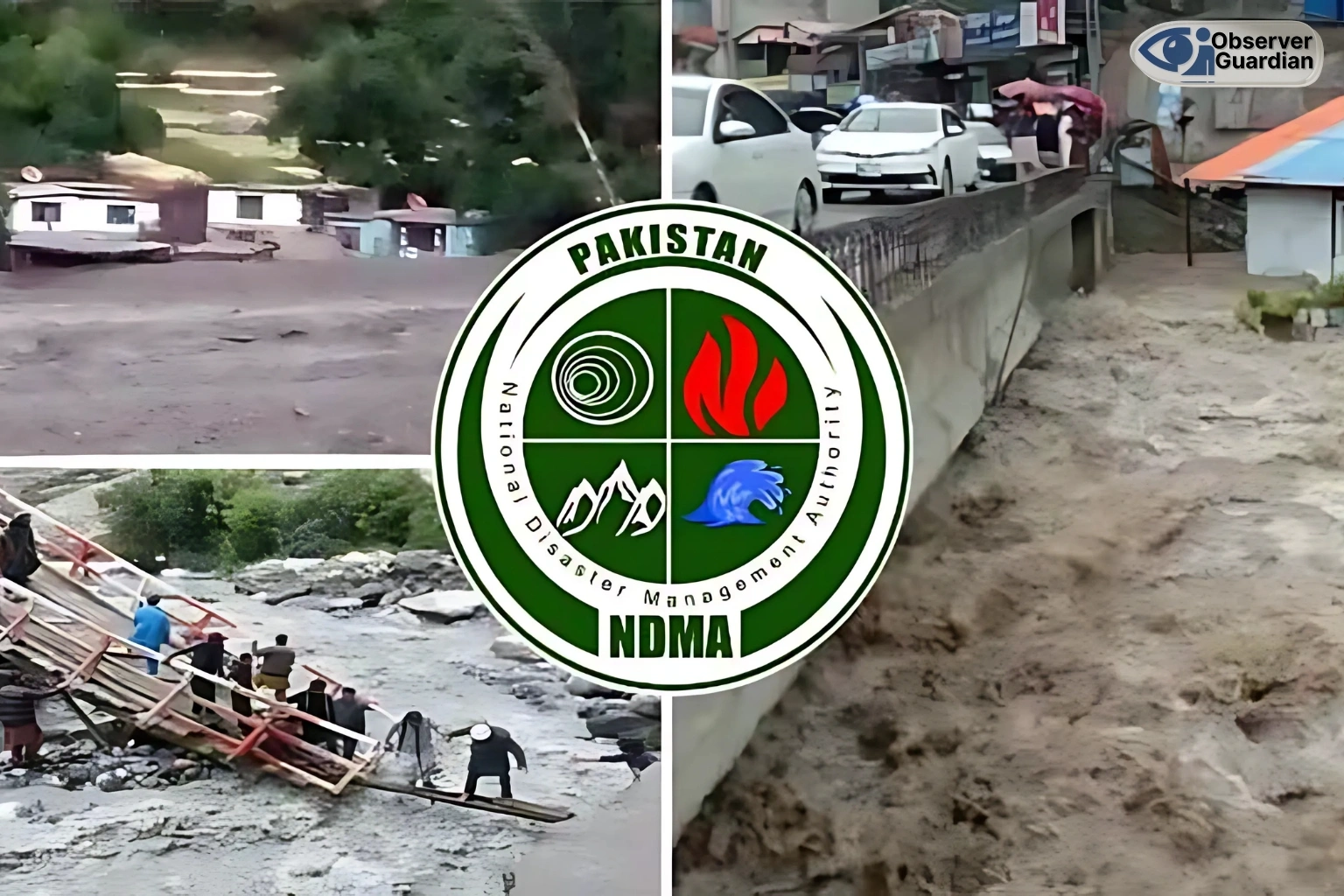The National Disaster Management Authority (NDMA) and the Pakistan Meteorological Department have issued urgent warnings of flash floods and heavy rainfall across Punjab and Khyber Pakhtunkhwa’s upper areas. Flood dangers have increased in the districts of Neelum, Poonch, and Bagh in Azad Jammu & Kashmir, while Peshawar, Chitral, Dir, and Charsadda in KP are also at serious risk, according to NDMA.
There will likely be more intense rains in the days ahead as three new monsoon systems approach Pakistan. Upper Punjab is especially susceptible to heavy rains and possible cloudbursts, and this includes Rawalpindi, Murree, Galiyat, Jhelum, Chakwal, and Attock. Additionally, the Meteorological Department has issued a warning that severe floods may occur in small streams and seasonal rivers in AJK, Gilgit-Baltistan, the Potohar region, D.G. Khan/Koh-e-Suleman, and northeastern Balochistan. Urban flooding is also a concern for low-lying districts in parts of southeastern Sindh, Islamabad, Rawalpindi, Peshawar, Nowshera, and northeastern Punjab.
Transportation routes in the hilly areas of KP, Gilgit-Baltistan, Murree, Galiyat, and Kashmir may be disrupted by landslides brought on by severe rainfall. Karachi and other major cities are at risk of urban flooding due to the strong monsoon currents that have already hit Sindh.
Lt. Gen. Inam Haider, the chairman of the NDMA, affirmed that monsoon seasons will last till the beginning of September. The government has ordered quick surveys to assess damages, he said, adding that “early warning systems play a vital role in reducing losses.” The chief minister of Punjab has instructed the state government to maintain a high level of alertness.
During a media briefing, technical expert Dr. Tayyab Shah clarified that another powerful monsoon wave will follow the present rain spell, which is expected to last until August 22. Northern Pakistan and Punjab are at increased risk as more weather systems move in from the Bay of Bengal and the Nangarhar and Kandahar regions of Afghanistan. Tarbela Dam has surpassed 98% of its capacity, and water levels might reach unsafe heights in the next 24 to 48 hours, according to NDMA’s General Manager Zara Hassan.
Observers warn that Pakistan is facing one of its most serious flood hazards in recent years due to the convergence of several systems. Proponents of climate resilience contend that the country’s ability to weather the next weeks will depend on readiness and prompt action.







